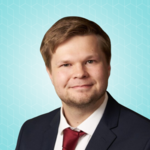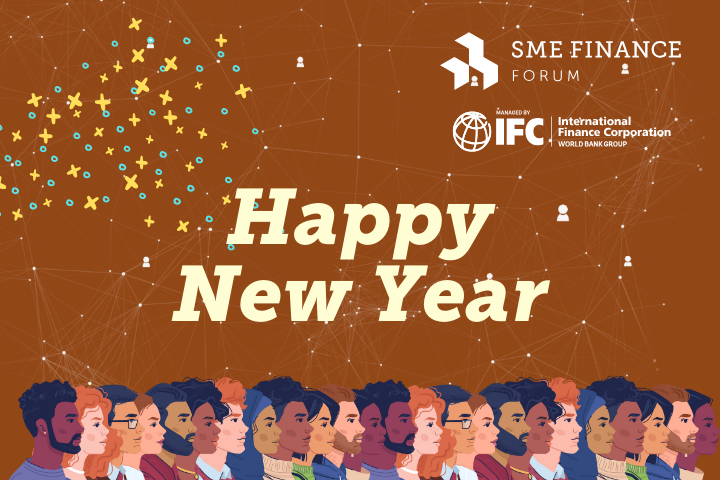Blog
DFIs present new funding opportunities for MSMEs

Summary of SME Finance Virtual Marketplace - 2023 March Session - LEADING DFIs
A recording of the session is available here: https://vimeo.com/804283237
Presentations are available for Members of the SME Finance Forum on our Member Portal
The “SME Finance Virtual Marketplace” is an online match-making platform that promotes partnership and collaboration between financial institutions, fintech companies and development finance institutions/ investors.
Small businesses have always been the lifeblood of most economies, especially in emerging markets. Yet this segment has limited to no access to the financial products required to run and grow their businesses. On March 1st, the SME Finance Forum Marketplace session gathered five leading Development Finance Institutions (DFIs) to present their MSMEs New Funding Opportunities. Below, you will find a summary of each of our speaker’s presentations.
Leveraging Capabilities for SMEs
Ody Akhanoba, Head of Afreximbank’s SME Development Unit, presented on the organization’s Export SME Development Programme, which is designed to mitigate the gaps in Africa's SME value chain, leveraging Afreximbank's suite of financial and non-financial capabilities.
SMEs drive over 80% of employment in Africa and are the most important stimulants of inclusive growth, innovation and job creation, yet SME trade participation in Africa does not currently reflect domestic importance. This is due to various impediments including lack of access to financing, lack of skills & capacity and lack of access to innovative technology, limited information channels and weak processing infrastructure.
The SME Development Programme seeks to mitigate these impediments and provide the resources necessary for SMEs of strategic relevance operating within identified focus sectors to expand and contribute to Africa's economic growth on a sustainable basis. The initiative’s four strategic pillars include financing, capacity building, market access and policy advocacy. Mr. Akhanoba specifically highlighted two of ESDB’s financial instruments: soft loans and convertible grants.
The ESDP broadly groups African SMEs into 3 tiers based on turnover (Emerging Corporates / Scale Ups, Mid-Sized Enterprises and Start-Ups & Microenterprises), but proposition development is guided primarily by the needs of the identified target constituencies.
Investing in Development
Rashanda Johnson, Director of Client Development at DFC, presented their partnership with the private sector to finance solutions to the most critical challenges facing the developing world today. DFC mobilizes private sector investment in emerging economies and prioritizes investments in lower-income countries and underserved communities. All investments are rooted in transparency and high standards.
Ms. Johnson presented DFC’s five main investment priorities: climate, global health, gender equity, information and communications technology (ICT) and inclusive growth. For climate, DFC looks for projects that help developing countries respond to climate change by promoting mitigation, adaptation and resilience and expanding access to clean and affordable energy.
DFC can offer its clients access to debt financing, political risk insurance, investment funds, equity investments, technical assistance and feasibility studies. This includes direct loans and guaranties of up to $1 billion for tenors as long as 25 years.
Qualification for DFC assistance rests on bankability, impact / additionality, foreign policy alignment, political risk and management capacity. Questions asked of any project might include if the project would be performed in a low income / lower middle-income country, if the project is majority-owned by private sector parties, if the sponsors have a track record, if the sponsors are contributing equity and if the project aligns with DFC development priorities.
Enabling entrepreneurs to increase inclusive and sustainable prosperity
Esther Njoroge, a Senior Associate for FMO's MASSIF Fund—the financial inclusion fund that FMO manages on behalf of the Dutch government—presented the organization’s strategy of enabling entrepreneurs to increase inclusive and sustainable prosperity. Since 1970, FMO has been a driving force behind investments empowering local entrepreneurs in emerging markets. They primarily operate in three sectors: agribusiness, food & water; financial institutions; and energy.
Ms. Njoroge spoke in-depth about FMO’s updated strategy towards 2030: “Pioneer, Develop, Scale". They start with market creation—developing unbankable opportunities into bankable projects. Then they move projects to public funds, developing new products and segments and making higher risk investments. Through their own balance sheet, FMO provides financial support and scale investments, and by mobilizing commercial partners, they aim to further scale their impact. Finally, as a change agent on environmental, social and governance (ESG) topics, FMO supports the development of their customers’ capabilities.
The organization creates impact by focusing activities on three key SDGs across all their sectors–SDG8 (decent work and economic growth), SDG10 (reduced inequalities) and SDG13 (climate action). Through their sector-specific strategies, Ms. Njoroge noted that FMO contributes to other SDGs as well.
FMO's investment in financial institutions–ranging from universal banks and microfinance institutions to NBFIs–includes supporting access of MSMEs to financial services, addressing the environmental and social impacts of business operations, promoting green development by extending credit lines dedicated to sustainable solutions and promoting inclusive development focusing on rural outreach. FMO offers long-term financing through loans (including syndicated loans), guarantees and equity. Whenever possible, funding is provided in local currencies.
An MSME Finance Strategy Focused on Inclusion, Sustainability and Digitalization
Gabriela Mera, Investment Officer at IDB Invest (a member of the Inter-American Development Bank), presented the organization’s strategy of promoting sustainable development and development impact through diverse clients in the financial industry, including investment funds, banking institutions and non-banking financial institutions. Regardless of the type of client, IDB Invest funds are used to promote and strengthen financial inclusion (for MSMEs and unbanked or underserved populations), the green agenda, housing, foreign trade and market access, value chains and digitization.
For IDB Invest, supporting MSMEs requires driving forward three strategic goals: inclusion and underserved populations, sustainability and digitalization. The organization can help MSMEs through their financial products (sector expertise), value chain financing, product innovation, access to other sources of funding, regulatory upstream knowledge, social and environmental value creation and advisory services.
Creating markets, creating opportunities
Galina Klimenko, Global Financial Inclusion Lead for IFC (International Finance Corporation), presented the organization’s Financial Institutions Group (FIG) solutions and impact. IFC investment banking and advisory services provide tailored solutions responsive to bank needs that help strengthen clients' performance and impact and improve their environmental, social and corporate governance standards. IFC's investment services include debt financing, equity financing, balance sheet risk management, mobilization and syndications, and performance-based funding for selected Banking on Women (BOW) financial institution clients. Their advisory services include expertise regarding SME banking & finance, supply chain finance, risk management, agrifinance, women’s market and digital financial services.
Ms. Klimenko took time to highlight some of the development impact and results achieved by FIG in 2021, noting that all investments are considered through a gender and climate lens. SMEs received $517 billion in loans from FIG clients in 2021, while micro enterprises received $108 billion in micro loans. Women-owned MSMEs received $36 billion in loans, and $11.1 billion in new climate related commitments were made from FY10-22.
About the presenters:
Afreximbank is a Pan-African multilateral finance institution established in 1993 promoting intra-and extra-African trade using credit (project financing), risk bearing (guarantees & credit insurance) and trade advisory services.
DFC, or the U.S. International Development Finance Corporation (DFC), is the United States’s development finance institution. DFC has a mandate to partner with the private sector to finance solutions for the world’s most critical development challenges.
FMO is the Dutch entrepreneurial development bank. Their mission is to enable entrepreneurs to increase inclusive and sustainable prosperity.
IDB Invest, a member of the IDB Group, is a multilateral development bank committed to promoting the economic development of its member countries in Latin America and the Caribbean through the private sector.
IFC, a member of the World Bank Group, advances economic development and improves the lives of people by encouraging the growth of the private sector in developing countries.
Presentation links:








